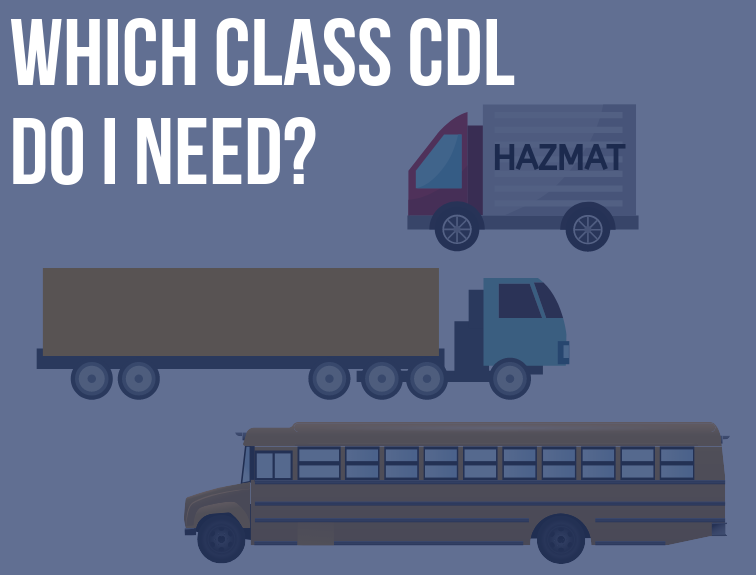Regulation FAQ’s
What documentation is required to be kept in the vehicle of units I have from Idealease showing that the vehicle is a lease or rented vehicle?
Answer: If the vehicle is subject to the Federal Motor Carrier Safety (FMCSA) regulations (greater than 10,000 lbs MGVWR) then a document is required to be in the unit for the duration of the lease or rental. Lease vehicles are subject to the FMCSA regulation CFR 376.11(c) stating that a copy of the lease or certified statement of lease with the required information is to be kept on the unit during the lease period. Rental vehicles are subject to the FMCSA regulation CFR 390.21(e)(2)(iv) stating that a copy of the rental agreement is to be carried on the unit for the duration of the rental. My driver is complying with the ELD regulations and the commercial vehicle they are driving becomes disabled and they need to operate a rental. What are the ELD exemptions that would allow them to complete paper logs for operating a rental unit?
- Drivers who have a rental vehicle for 8 days or less (FMCSA letter of exemption must be available to an officer upon request).
- Drivers who use paper logs for not more than 8 days during any rolling 30-day period.
- Drivers who conduct driveaway-towaway operations, where the vehicle is the product being delivered.
- Drivers of vehicles manufactured before the model year 2000.
- Drivers who operate using the logbook exception (i.e. short-haul 100 air mile CDL and 150 air miles Non-CDL drivers) and can comply with the exception 22 days out of a rolling 30 day period.
- INTRAstate operations (Depending on your state's timeline for adopting the ELD regulation).
I am using a driver leasing company, who is responsible for compliance with the Federal Motor Carrier regulations?
Answer: Driver services and driver leasing companies are not motor carriers and are not responsible for compliance with the regulations. The driver service or leasing company may complete activities such as driver qualification files, annual reviews, road tests, etc. at the direction of the motor carrier. However, keep in mind that you the motor carrier are responsible for any non-compliance with the FMCSA regulations.
As a driver am I responsible to see that the cargo in my truck is properly secured even if I do not load it?
Answer: YES, The FMCSA Regulations state in CFR 392.9(a)(1) a) General. A driver may not operate a commercial motor vehicle and a motor carrier may not require or permit a driver to operate a commercial motor vehicle unless-(a)(1) The commercial motor vehicle's cargo is properly distributed and adequately secured as specified in §§ 393.100 through 393.142 of this subchapter.
Do I need a CDL license to operate that truck?
Answer: The regulations that address this question are found in FMCSA CFR 383.3.
- The rules in this part apply to every person who operates a commercial motor vehicle (CMV) in interstate, foreign, or intrastate commerce, to all employers of such persons, and to all States.
The definition for a commercial motor vehicle for this regulation is as follows: Commercial motor vehicle (CMV) means a motor vehicle or combination of motor vehicles used in commerce to transport passengers or property if the motor vehicle-
- Has a gross combination weight rating of 11,794 kilograms or more (26,001 pounds or more) inclusive of a towed unit(s) with a gross vehicle weight rating of more than 4,536 kilograms (10,000 pounds); or
- Has a gross vehicle weight rating of 11,794 or more kilograms (26,001 pounds or more); or
- Is designed to transport 16 or more passengers, including the driver; or
- Is of any size and is used in the transportation of hazardous materials as defined in this section.
What are the disqualifications that would prevent a driver from receiving clearance in the security threat assessment process for a Hazardous Materials endorsement?
Conviction of any of the following crimes will disqualify a driver from being eligible for a hazmat endorsement:
• Terrorism, Assault with intent to murder, Murder, Espionage, Sedition, Kidnapping or hostage-taking, Treason, Rape or aggravated sexual abuse, Extortion, Robbery, Arson, Bribery, Smuggling, Immigration violations, RICO (Racketeer Influenced and Corrupt Organizations Act) violations, Unlawful possession, use, sale, distribution, or manufacture of an explosive device, firearm, or another weapon, Distribution of, intent to distribute, possession, or importation of a controlled substance, Dishonesty, fraud, or misrepresentation, including identity fraud, Crimes involving a severe transportation security incident, Improper transportation of hazardous material, Conspiracy or attempt to commit any of these crimes
All drivers who need to renew their hazardous material endorsement or apply for a new HM endorsement on their CDL need to complete the “Security Threat Assessment” process. It is recommended that drivers start this process 90 days prior to the expiration of their license. To start the assessment process, go to: https://www.tsa.gov/for-industry/hazmat-endorsement
What do the FMCSA regulations say about my driver who has a current medical certificate but has developed a medical condition that would make the operation of a commercial motor vehicle (CMV) questionable and possibly unsafe?
FMCSA regulations prohibit a driver from beginning or continuing to drive if their ability and/or alertness is impaired by: fatigue, illness, or any cause that makes it unsafe to begin (continue) to drive a commercial vehicle.
Even if a driver currently has a valid medical certificate, the driver is prohibited from driving a CMV with any medical condition that would be disqualifying or may interfere with the safe operation of a CMV. Once a disqualifying medical condition is resolved, and before resuming operation of CMV, a driver is responsible for obtaining re-certification from a Medical Examiner. FMCSA CFR 391.45
FMCSA Releases Details of 18–20-Year-Old Driver Apprenticeship Program
The Federal Motor Carrier Safety Administration has released the details of its apprenticeship program for 18–20-year-old drivers to operate commercial motor vehicles in interstate commerce. The notice is an Information Collection Request seeking emergency approval by the Office of Management and Budget to move forward with the program. The recently enacted infrastructure legislation requires the Secretary of Transportation to conduct a commercial driver Apprenticeship Pilot Program. An “apprentice” is defined as a person under the age of 21 who holds a commercial driver’s license. Under this program, these apprentices will complete two probationary periods, during which they may operate in interstate commerce only under the supervision of an experienced driver in the passenger seat. An experienced driver is defined as a driver who is not younger than 26 years old, who has held a CDL and been employed for at least the past 2 years, and who has at least 5 years of interstate CMV experience and meets the other safety criteria defined in the Act. The first probationary period must include at least 120-hours of on-duty time, of which at least 80 hours are driving time in a CMV.
- Interstate, city traffic, rural 2-lane, and evening driving
- Safety awareness
- Speed and space management
- Lane control
- Mirror scanning
- Right and left turns
- Logging and complying with rules relating to hours of service
- Backing and maneuvering in close quarters
- Pre-trip inspections
- Fueling procedures
- Weighing loads, weight distribution, and sliding tandems
- Coupling and uncoupling procedures
- Trip planning, truck routes, map reading, navigation, and permits










